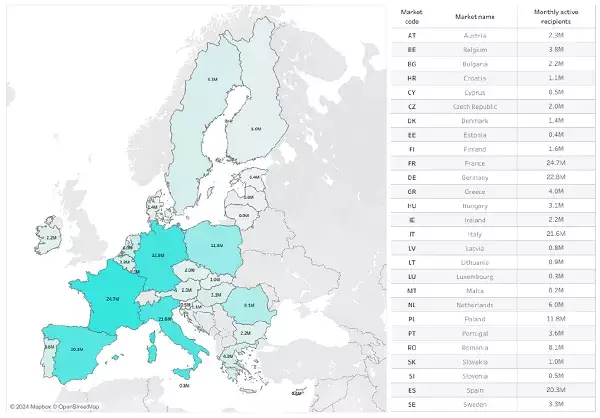TikTok has once again provided a glimpse into its operations in Europe with the release of its latest report as part of the Digital Services Act (DSA) compliance. Covering the period from January to June of this year, the report is the first to encapsulate a full six-month span, making it a crucial update for stakeholders interested in understanding the platform’s user dynamics, content moderation efforts, and regulatory compliance in the European Union (EU).
One of the most striking statistics presented in the report is the sheer volume of content removals, totaling approximately 22.2 million pieces during the reporting period. Notably, the category of “Sensitive & Mature Themes” constituted the predominant reason for these removals, overshadowing other categories such as “Regulated Goods and Commercial Activities” and “Mental and Behavioral Health.” This raises important questions about societal norms and the challenges of moderating content centered around sensitive topics in a highly diverse user base.
Interestingly, TikTok’s moderation efforts appear to have decreased in terms of monthly average removals when compared to the previous quarter. The platform has shifted from an average of 4.3 million removals per month to about 3.7 million, suggesting a more refined approach to content management. While this decline in removal numbers could be a reflection of improved moderation techniques or a deeper engagement with user-generated content, it remains critical to evaluate whether this decline compromises user safety or content integrity.
The report further reveals that users have reported significant concerns primarily related to “Illegal Hate Speech,” subsequent to which “Privacy Violations” and “Sharing of Non-Consensual Intimate Images” are also prevalent worries. This highlights a troubling aspect of TikTok’s environment, wherein some users feel compelled to flag harmful content. The high volume of reports in these categories emphasizes a growing need for educational campaigns about proper online behavior and the responsible use of social media platforms.
Moreover, TikTok’s proactive stance in banning over 5.3 million accounts during the reporting period suggests an effort to confront these issues directly. Such statistics are encouraging, as they indicate a commitment to maintaining a user-friendly environment; however, it raises an important point of contention regarding the user experience for those who may be unjustly banned or flagged.
On a more positive note, TikTok’s user base in Europe has shown solid growth, now boasting 150.5 million monthly active users—a gain of 8 million since the last report. While this growth rate may not be staggering, averaging about 1.3 million new users per month, it underscores TikTok’s steady rise as a key player in the social media landscape. Strategic growth in key markets such as Germany, France, Italy, and Spain—with each country exceeding 20 million users—indicates the platform’s increasing resonance with European audiences.
Such user engagement metrics are pivotal for brands and marketers looking to gain traction within this demographic. With significant portions of TikTok’s user base coming from the EU, it becomes imperative for businesses to adapt their strategies accordingly to effectively engage this audience.
Overall, TikTok’s latest report provides critical insights into its operational performance in the European landscape. The trends in content moderation and user report data reveal both challenges and progress, painting a picture of a platform in constant evolution. Stakeholders—ranging from users and regulators to brands—must consider these nuances when interacting with TikTok.
As TikTok continues to navigate the complexities of content moderation while also expanding its user base, it remains crucial for all involved parties to engage thoughtfully with the platform. Understanding the dynamics of user behavior, legal compliance, and marketplace trends on TikTok could effectively enhance promotional strategies aimed at European users. In a landscape where social media continues to evolve, adaptability is key to leveraging the full potential of platforms like TikTok.


Leave a Reply